Book An Appointment

Commonly overlooked, men’s health and sexual wellness form an integral part in a man’s well-being. Part of our emphasis on holistic healthcare mean we tackle issues concerning men’s health and sexual wellness, over and beyond our management of routine illnesses.
We see conditions including Erectile Dysfunction, Premature Ejaculation, Low Testosterone Level, Sexually Transmitted Diseases amongst other issues

If you can’t get it up, or not able to last until you ejaculate, you are having Erectile Dysfunction. Click on the questionnaire below: IIEF-5 Questionnaire
For erection to occur, the appropriate stimulus must be present (thought, visual or touch) for arousal to occur. With arousal, the nervous system will send a signal to the penis to increase blood flow into the penis. There are mechanisms that help to maintain the blood within the penis vasculature in order to maintain a good erection. Upon ejaculation, the blood will be released and the penis will become flaccid again.
Any disruption along the pathway described above can cause erectile dysfunction. These includes:
Poor blood vessels
This will affect blood flow into the penis; hence erection can’t be achieved or will be suboptimal. Conditions that can affect the blood vessel include Diabetes and High Cholesterol. Hence, anyone with erectile dysfunction should consider doing a health screening to ensure that it is not caused by the conditions mentioned above.
Psychological – by far one of the most common causes of erectile dysfunction in young healthy male. Performance anxiety is likely the cause and usually it is readily reversible once the confidence improves.
Nerve/Spinal cord damage – for erection to occur, the nerves to the penis need to be intact. Any history of injury to these nerves will affect erection.
for erection to be maintained, these valves need to be competent to prevent blood in the penis from flowing out.Damage to these valves will cause one not to be able to maintain his erection
any injury causing physical damage to the penis can affect erection
Strength of erection can be divided into 4 grades as show in the picture below:
Medications to treat erectile dysfunction have been in the market for very long and are proven very effective. It is very well tolerated although the most common side effects include headache or flushing. These tend to get better with subsequent doses. These medications are usually taken about 30-60 minutes before intercourse and best taken with an empty or light stomach.
A common misconception about these drugs is that it is an aphrodisiac and hence it increases the libido. Medications to treat erectile dysfunction are NOT aphrodisiac and do not affect one’s libido. Another misconception is that after taking the medicine, the erection should happen spontaneously. Again, the answer is NO. One still needs arousal in order to achieve erection.
One common complaint about these medications is that there is a need to plan for the occasion and hence there will be no spontaneity. There is a medication that is taken every day and this is more suitable for those who have intercourse more frequently and cherishes spontaneity.
There are other modalities of treatment for erectile dysfunction but these are more invasive and it is not suitable for all cases of erectile dysfunction. These include Caverject injection, shockwave therapy, implantable device etc.
This group of people should consider checking for testosterone levels:

If you are unable to last more than 2 minutes, you may be having Premature Ejaculation.
Click on the questionnaire below:
Premature Ejaculation Diagnostic Tool (PEDT)
1 in 3 men worldwide suffers from Premature Ejaculation, hence making it more common than Erectile Dysfunction. While it is easy for one to know if they have erectile dysfunction, it is not the same for premature ejaculation. How fast is it before it is considered fast? 5 minutes to one person may be adequate while to another it is a miracle.
Is premature ejaculation defined only by time? No. Although time is the main criterion but it is not the only criteria. The others being lack of control and significant distress caused to the person and/or his partner.
There are some methods that can help to increase the time (Intravaginal ejaculation latency time / IELT). These are:
When it comes to medication, there is only one medication currently approved in the market. Studies have shown that this medication increases the IELT significantly compared to placebo. It is very safe and well tolerated, the most common side effects being nausea and giddiness (usually on the first few tablets). This medicine is usually taken about 1 hour before intercourse.
To start, one should load his body with 1 tablet a week for the first 6 weeks regardless of sexual intercourse. Effect will be best seen after the first 6 tablets. It is safe to take this medication concurrently with medications for erectile dysfunction (for those with concomitant erectile dysfunction).
Hypogonadism (or commonly known as Low Testosterone Level), is slowly gaining more recognition as an important entity affecting men. It is characterized by the low circulating free testosterone hormone in the male body, thus causing a multitude of symptoms as follow:
To diagnose, one need to have:
A simple diagnostic tool is available to screen for symptoms of low testosterone level:
ADAM QUESTIONNAIRE
It is important to exclude other conditions that can mimic low testosterone level such as hypothyroidism and depression.
What are the risk factors for low testosterone level?
Treatment is readily available and is safe! Testosterone replacement does not make one manlier (and hence not indicated as sports performance enhancer). It is meant to restore the quality of life a man has lost as a result of the low testosterone level.
Replacement comes in few forms:
Each type of treatment has its benefits and disadvantages. Do speak to your doctor with regards to the advantages and disadvantages of each mode of treatment.
While on replacement, one needs to go through regular blood tests to monitor the testosterone level, blood count and prostate cancer markers (1 to 2 times a year)
Testosterone replacement is SAFE and DOES NOT increase the risk of prostate cancer in men.
Testosterone replacement however should not be used in the following groups:
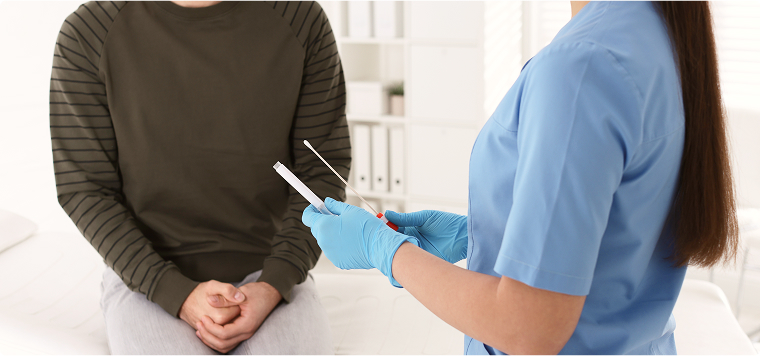
If you consider yourself in the high risk group for sexually transmitted disease or worried that you may have sexually transmitted disease, do make an appointment with Phoenix Medical Group in either of these branches:



9:00am to 8:30pm
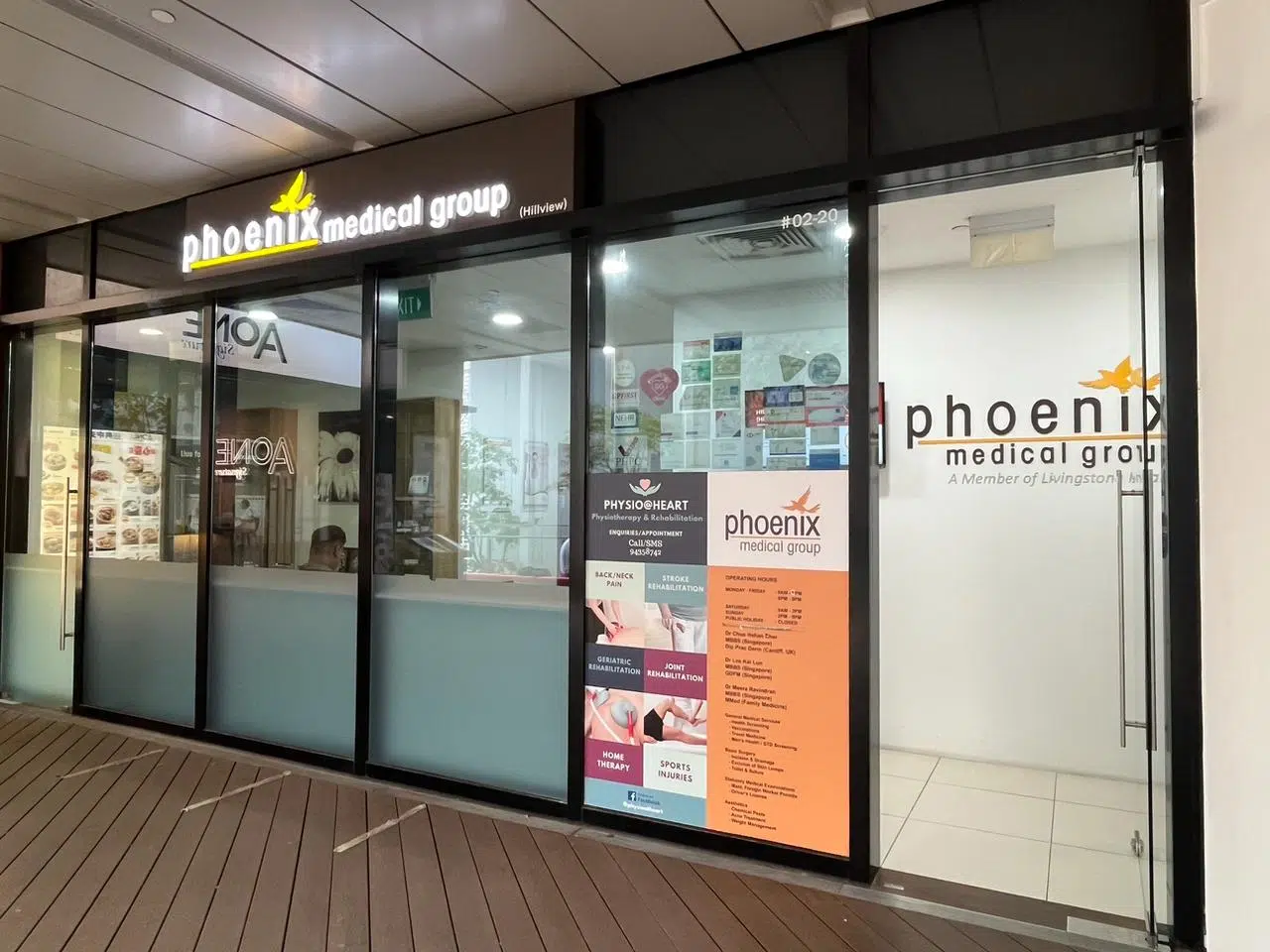
9:00 am - 4:30 pm, 6.00 pm - 8:30 pm
9:00 am - 1:30 pm
2:00 pm - 8:30 pm
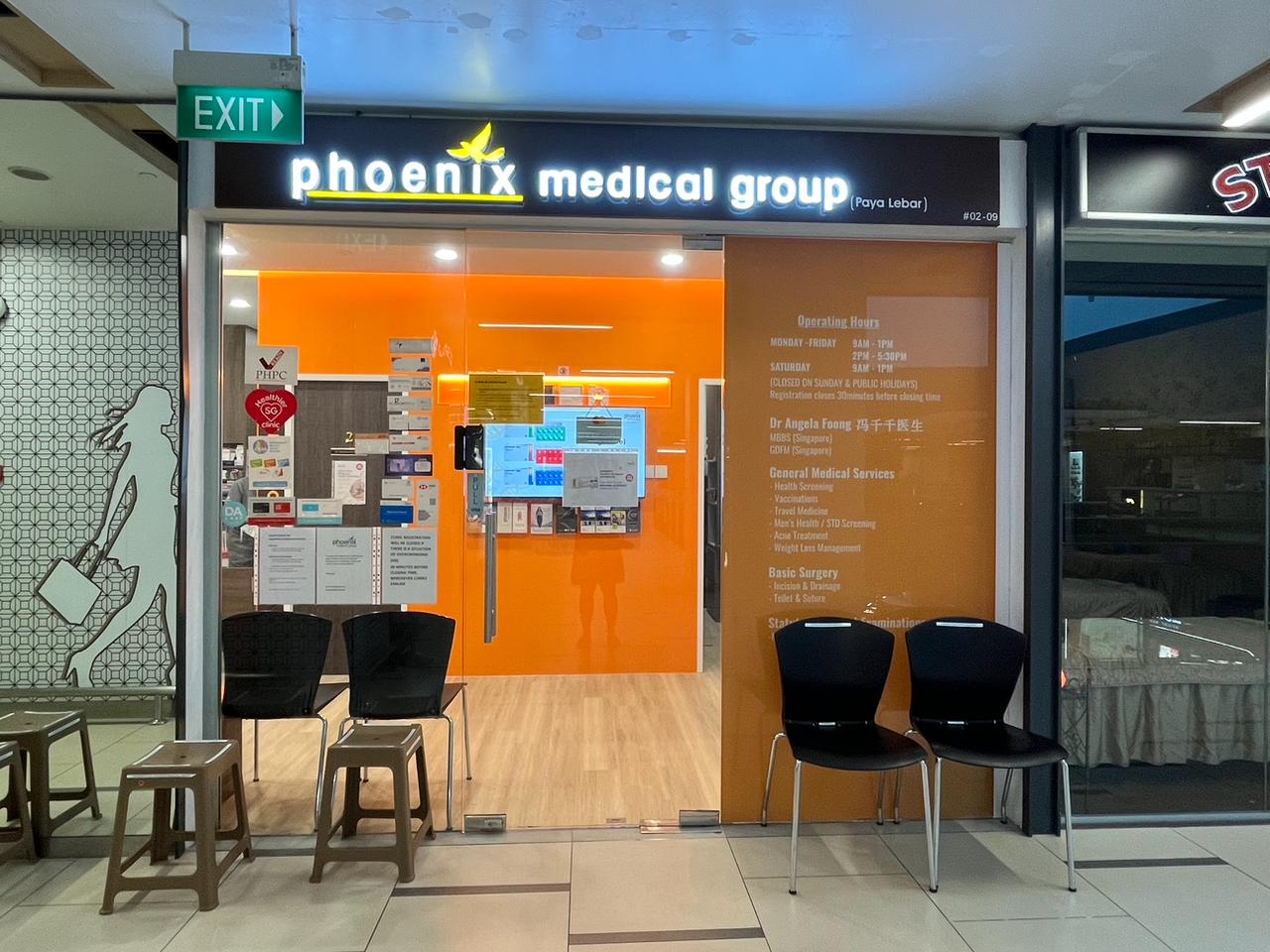
60 Paya Lebar Road, #02-09 Paya Lebar Square, Singapore 409051
9:00 am - 12:30 pm
2:00 pm - 5:00 pm
9:00 am - 12:30 pm

275 Thomson Road,
#01-05 Novena Regency,
Singapore 307645
9:00 am - 2:30 pm
6:00 pm - 8:30 pm (Mon, Tue, Wed & Fri)
9:00 am - 1:30 pm
2:00 pm - 8:30 pm
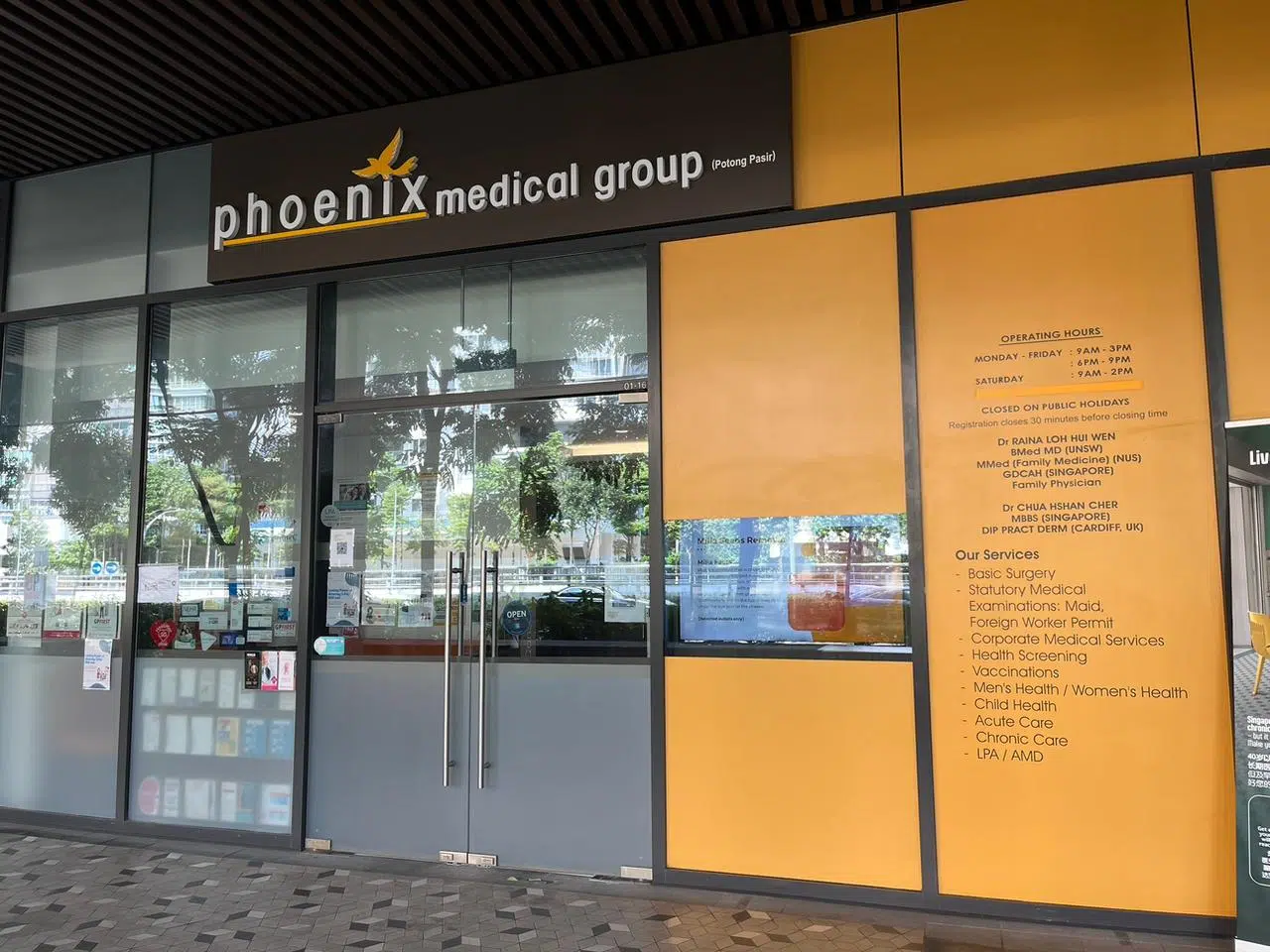
The Venue Shoppes,
2 Tai Thong Crescent, #01-16,
Singapore 347836
9:00 am - 3:00 pm
6:00 pm - 9:00 pm (Mon, Wed & Thu)
9:00 am - 2:00 pm
Closed
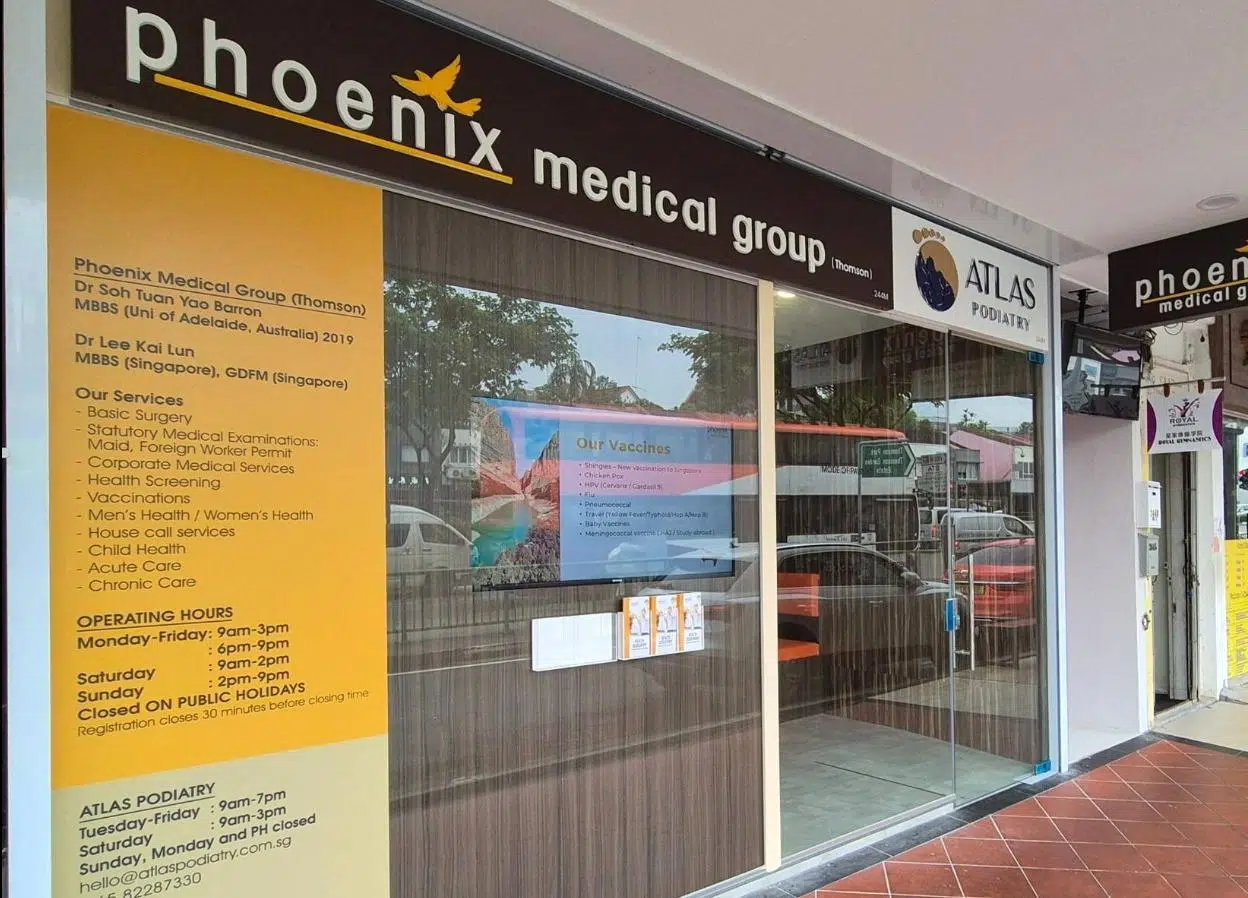
244M Upper Thomson Rd, Thomson Garden Estate, Singapore 574369
9:00 am - 3:00 pm
6:00 pm - 9:00 pm (Mon & Wed)
9:00 am - 2:00 pm
Closed
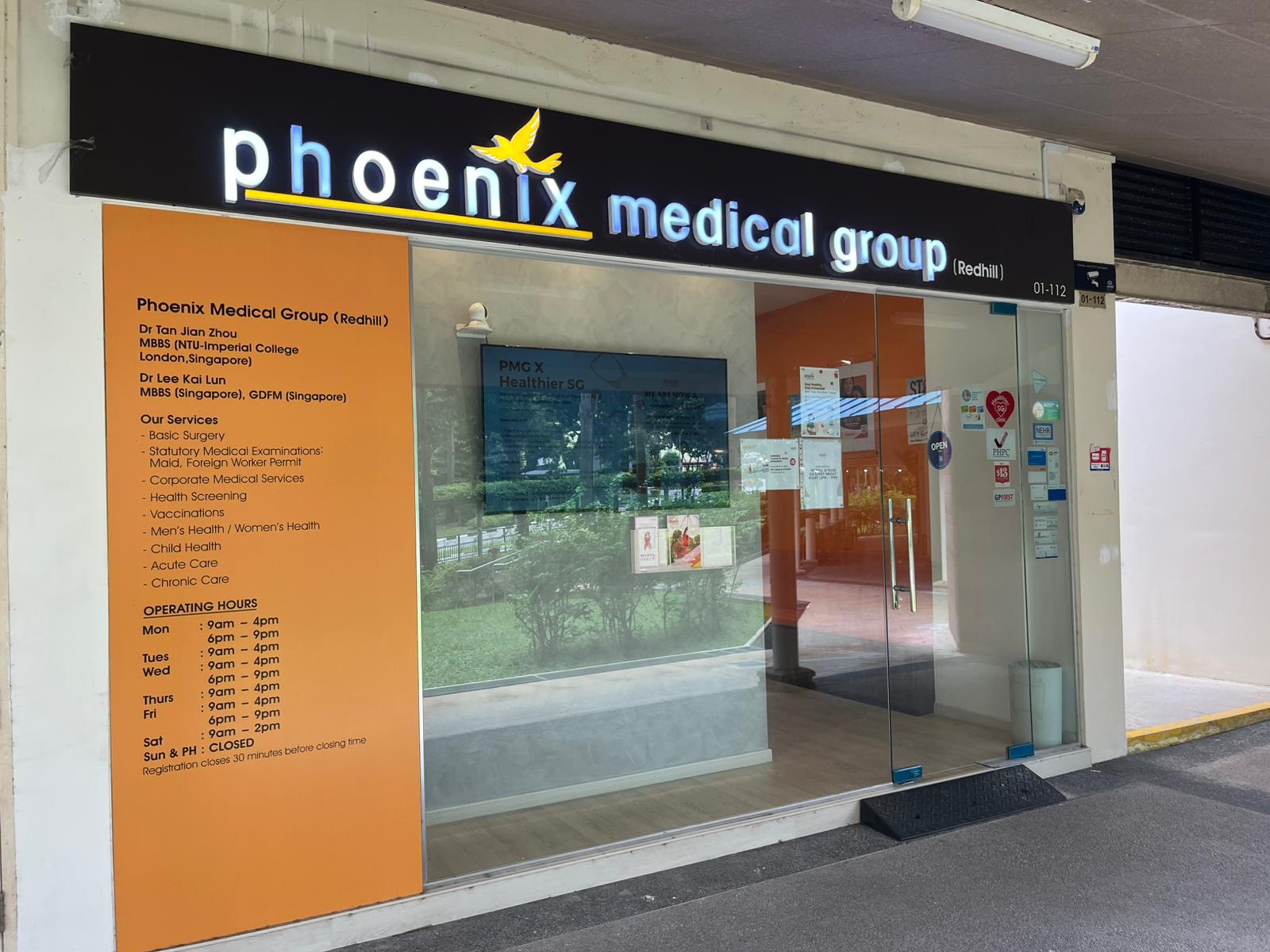
9:00 am - 4:00 pm
6:00 pm - 9:00 pm
9:00 am - 2:00 pm
Closed